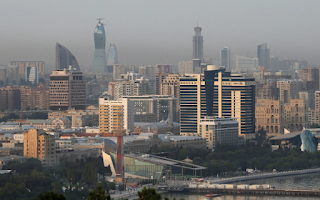Azerbaijan Emerges as the Host for COP29: A Blend of Hope and Concerns
As the dust settles on the COP28 summit in the United Arab Emirates, attention turns to the future, with Azerbaijan set to host the U.N. Climate Summit in 2024. While the resolution ends months of uncertainty, it brings a blend of hope and concerns, especially regarding Azerbaijan's political landscape and reliance on oil and gas revenue.
Azerbaijan's bid to host COP29 marks the end of a prolonged political standoff over the next U.N. Climate Summit's location. Following the United Arab Emirates' role in COP28, Azerbaijan, a significant oil and gas producer, steps into the spotlight.
The decision ends a diplomatic tussle within the Eastern European group, complicated by Russia's veto against countries condemning its actions in Ukraine. The breakthrough came as Armenia, amid unresolved conflicts with Azerbaijan, supported its neighbor's bid, deeming it a "gesture of good will."
While many hail the resolution, concerns arise over hosting another climate conference in an authoritarian nation heavily dependent on oil and gas revenue. Activists, including David Tong of Oil Change International, emphasize the need for the United Nations to ensure freedom of speech and media, along with a strict conflict of interest policy on fossil fuels.
Balancing Hope and Concerns: As preparations for COP29 kick off, there's a delicate balance between optimism for progress in global climate discussions and concerns about the implications of hosting the conference in a nation with a complex political history.
Call for Transparency and Accountability: Activists stress the importance of maintaining transparency, ensuring freedom of expression, and implementing a robust conflict of interest policy. The role of fossil fuel lobbyists at climate conferences is under scrutiny, with calls for strict regulations to avoid conflicts.
Global Cooperation on the Horizon: The resolution brings a sigh of relief, allowing countries to focus on preparing new emission-curbing plans for 2030-2035. Yet, the choice of host raises questions about the commitment to addressing climate issues in nations with complex political landscapes.
Frequently Asked Questions (FAQs):
Q: Why was there uncertainty over the location of COP29? A: Political tensions and Russia's veto complicated the Eastern European group's selection process.
Q: How did Armenia and Azerbaijan resolve their differences? A: Armenia supported Azerbaijan's bid as a "gesture of good will," though a formal peace deal is pending.
Q: What concerns are raised about hosting COP29 in Azerbaijan? A: Activists express concerns about an authoritarian regime and the nation's heavy reliance on oil and gas revenue.
Q: What are activists calling for regarding fossil fuel lobbyists? A: Activists emphasize the need for a strict conflict of interest policy and ensuring freedom of speech for civil society groups.
Q: How does the resolution impact global climate discussions? A: The resolution allows countries to focus on preparing emission-curbing plans, but concerns linger about the political landscape of host nations.
This article maintains a professional, informative, and neutral tone, providing insights into the resolution of the COP29 host location and highlighting the associated challenges and opportunities.
- #COP29Host, #ClimateConference2024, #ClimateDiplomacy, #AzerbaijanClimateSummit, #ClimateConcerns

